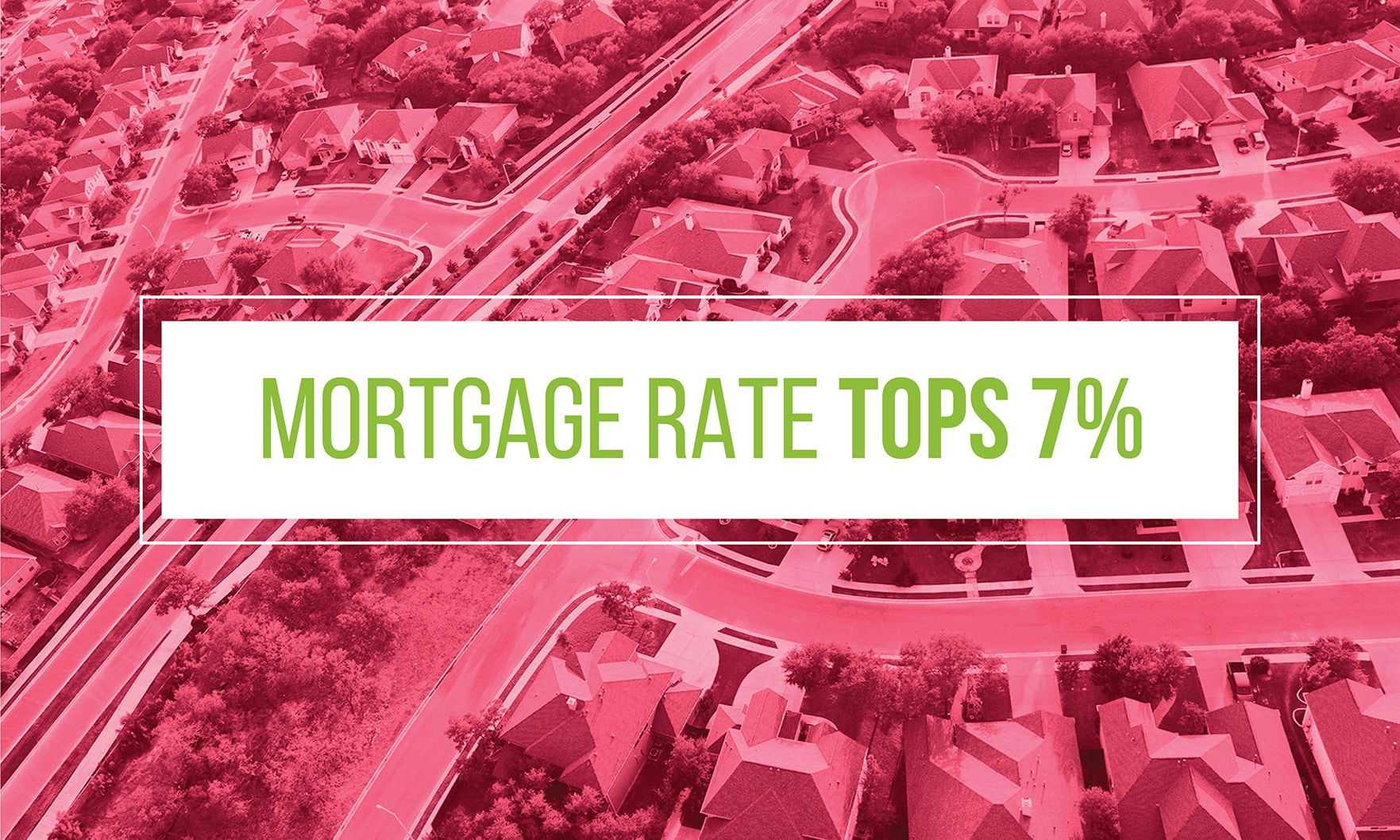A 30-year fixed-rate mortgage topped 7% for the first time in more than 20 years this week, Freddie Mac reported, citing its Primary Mortgage Market Survey.
Specifically, the rate jumped from 6.94% last week to 7.08% this week. The last time the rate topped 7% was April 2002. A year ago, the 30-year fixed was 3.14%.
“As inflation endures, consumers are seeing higher costs at every turn, causing further declines in consumer confidence this month,” Freddie Mac chief economist Sam Khater said in a press release. “In fact, many potential homebuyers are choosing to wait and see where the housing market will end up, pushing demand and home prices further downward.”
National Association of REALTORS® senior economist and director of forecasting Nadia Evangelou said the macroeconomic circumstances surrounding this week’s increase were somewhat unusual, and cited the just-released third-quarter U.S. GDP figure, which came in at 2.6%, topping analysts’ expected 2.3% gain.
“Generally, during inflationary periods, people hold less money and, thus, spend less,” Evangelou said in a press release. “However, that’s not currently the case. Amid elevated inflation and higher interest rates, the U.S. economy grew more than expected, easing inflation fears for the time being. As a result, mortgage rates surpassed the 7% threshold this week.”
Noting the impact rising mortgage rates have on homebuyer borrowing costs, which have increased monthly mortgage payments by $1,000, Evangelou said minority groups could feel an even greater strain on their pocketbooks.
“With 7% mortgage rates, only 15% of Black households can currently afford to buy the typical home, compared to 30% of White households,” she said. “Thus, Black families may fall further behind in homeownership compared to their White counterparts.”

